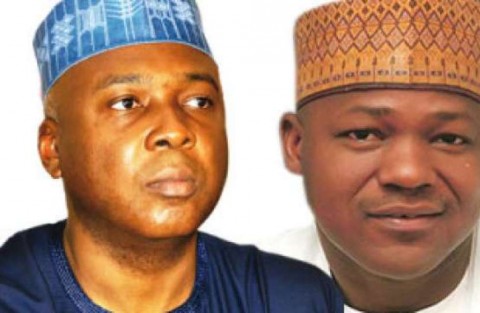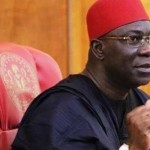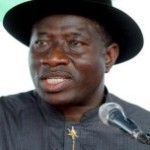Opinion: Nigerian Parliament And the Imperative of Ethical Introspection
Articles/Opinion, Latest Headlines Tuesday, August 18th, 2015
By Uche Igwe – Many people are worried that the endless negative news from and about our parliament could submerge her potential contributions in democracy in Nigeria. For such an institution that is so critical to our democratic survival that ought not to be the case. Parliaments are important institutions that cut across both vertical and horizontal accountability. Their roles of representation, law making and oversight are at the core of democracy. They have a constitutional mandate to both oversee government and to hold government to account. They also play a central role in promoting horizontal accountability through constituency outreaches, public hearings and other events that amplify citizens’ voices. The way members of parliament conduct themselves in very crucial to how effective they can be in performing these roles. Many scholars have argued that parliaments, more than any other institution with the possible exception of the courts, are institutions whose members should be looked at as exemplary role models for members of society. It therefore follows that if parliamentarians behave in certain ways, there is a likelihood that other members of society will see such conduct as generally acceptable. The reputation and behaviour of parliamentarians is therefore of considerable significance both to the legitimacy of democracy and to the way that members of society at large are likely to behave. To discharge their duties in a manner that is consistent with their public interest role, parliamentarians must therefore observe high ethical standards.
The issue of how the Nigerian public perceive a parliamentarian is very central here. A dominant view will be that of a stereotypic picture of someone who is continuously dipping hands into public funds to service private interests at the expense of public good– someone who though is very important in the society and can be a source of patronage but who cannot be trusted beyond the handouts he/she can offer. One observer simply dismissed them as thieves who are in the parliament for their stomachs alone. If such a perception is preponderant in our society then there obviously a cause to worry. I am sure such a picture will not come as a surprise to the parliamentarians themselves. However it will be simplistic and reductionist to conclude that every parliamentarian is corrupt as that the picture above tends to suggest yet one will be interested to ask whether such a perception is rigid and stationary or what can be done to challenge it? In order to take the inquiry into proper perspective, it will be important to understand whether parliamentarians themselves are aware that this is how they are being perceived by those they are supposed to be representing and
whether such perception bother them at all? This will be a beginning of any forward looking conversation about any effort towards any remedial action. The health of our democracy is partially dependent on the strength and effectiveness of the parliament therefore for any proposal for reforms to succeed the parliament must be carried along. It is either the parliament is incorporated or it will fail.
Now the frequent scandals that have erupted in the past parliaments have contributed to eroding whatever trust the public ever had on their parliamentarians and casting them in very dubious light. I do not mean to suggest that it is impossible to reposition the parliament to become more strengthened in playing their constitutional roles and be seen to be doing so by the Nigerian public. No. What I wish to highlight is the fear that the picture is currently persistent and will take a while to wither away and has a potential of submerging any proposed change in the way of doing things. It means that there is a whole lot of work to do both by the parliamentary leadership and other actors who are interested in the project of casting the current political dispensation is any positive light. Such changes must not only be swift and radical, they must also be communicated widely. My argument here is that the task of rebuilding the image and reality in our parliament is an urgent necessity which demands our collective consideration if we intend to give democracy a new lease of life. Beyond being guardians of public treasury, parliamentarians occupy a vantage position in the making and unmaking of laws including those pertaining to reduction of corruption and even sanctions against the corrupt.
The aspiration here is that when someone is referred as ‘distinguished’ or ‘honourable’ one must have a picture of some sort of what that means. I wonder if there can ever be a consensus about what to expect even among parliamentarians themselves. That said it will be important to at least minimize surprises and embarrassment as currently may be the case. Where to start will be a contention but at least parliamentarians themselves should be made to realize one way or the other that such a position comes with an ethical burden on them and some certain expectations from the public. In addition there must be some scrutiny about a background and history of anyone who aspires to be a parliamentarian. It ought not to be a job for everybody.
Now there are other pragmatic issues that we must also take into consideration in this conversation. The parliamentarian is first a politician before any other thing else. So the overarching objective here is to win election to retain his or her seat. Every other things is derived from that. Beyond the daily discharge of constitutional duties therefore, there are compelling reasons for him or her to give priority attention to anything that will relate to his election or re-election– be it at party level or as it
affects his/her constituents. For many out there, a successful politician is someone that provides the highest amount of ‘stomach infrastructure’. Now such a climate where ones popularity is somewhat determined by the amount of particularistic opportunities you extend to those that matter to you politically – be they from your constituency, your political party or those who provided you with funds, there a temptation to deliberately extend the boundaries of conduct and misconduct in order to accommodate such ‘strategic interests’.
I have highlighted this not in defence of any unethical behaviours in the parliament or in politics but to put the issues in context. For us to consider the pragmatic issues that may contribute to the ethical choices that parliamentarians as politicians make daily in Nigeria. If we ignore those aspects of thinking, we risk sounding sanctimonious which will perilously impoverish our views about situating the ethical dilemmas that parliamentarians face in discharging their very important duties. The boundaries between a politician’s persona as a public official as against his or her standing as private person in Nigeria is often blurred. That it is often difficult to differentiate what constitutes misconduct from the normal process of politics is a huge challenge to the journey of ethical introspection.
Should other stakeholders in the Nigeria polity bother about conduct and misconduct in the parliament of should they be left alone to bother with ‘their’ problems? Should the reported intra-party political misunderstanding within the ruling All Progressives Congress during the selection of the leadership of the national parliament mean that they will turn a blind eye to how members of such a critical arm of government conduct themselves? My submission is that if products from parliamentary action or inaction have potentials of polluting or sanitizing society then it will be inexcusable and if fact too risky to turn a blind eye to such an institution and how they operate. The hastened healing process within the ruling party in this regard with provide the necessary momentum. It needs to happen for it clearly is in the interest of those who voted them to power.
Related Posts
Short URL: https://www.africanexaminer.com/?p=24979






















